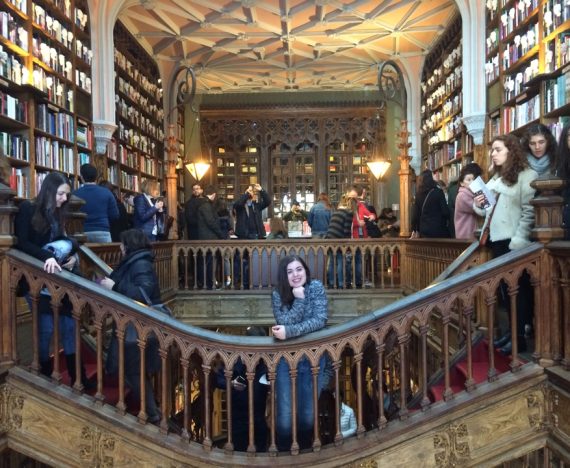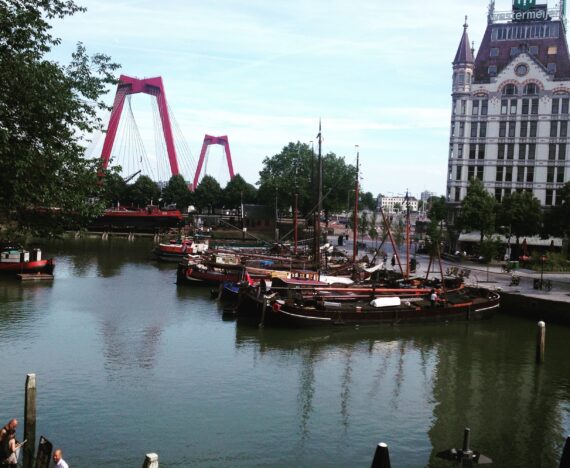This article is a bit different from the usual and I must thank Simona for her availability.
I like the idea of telling your stories, or letting you tell them.
Clearly the modalities can be varied, this time we opted for a kind of interview.
First of all I leave the introduction to Simona:

Hello readers of Going Expat!
I am Simona, a twenty-five year old Sicilian a bit chatty I do not like to define myself in a single category, because I have many passions that I try to cultivate at the same time (failing most of the times ahah) and I still do not have clear ideas about my future work.
So what do I do for a living? I divide myself between the study of foreign languages, personal online training, the creation of content on social media and the voluntary translation of children’s stories.
In my spare time, I love to travel and photograph every single thing I see.
Let’s move on to the focus of our article with the questions, but above all, the answers that will make us travel a bit between Spain and Portugal.
Ready?! Go!
1- When you did your Erasmus in Spain and how did you choose the destination where to go among the alternatives offered by the university?
I was in Erasmus from September 2017 to the end of January 2018. I didn’t actually choose the destination, it happened to me. My first choices were southern cities, which I had already visited: Seville and Granada, then Malaga and Valencia.. La Coruña was my fifth and final choice, made by chance after a quick glance on Google. Images.
2- Do you think it was an educational experience? And if so, in what sense?
Absolutely yes! Erasmus trains you not only at the student level, but also on the human one. You learn to relate to a completely different university system, starting with the secretariat and the professors. You learn to open up with your peers but of different nationalities and cultures, you learn to be more organized and to get out of your comfort zone
3- What have you learned about Spanish culture that you did not know? And what do you like and not, of the same?
Being a Spanish student for more than 10 years, I wasn’t particularly shocked by their culture. As a first impact I have destabilized the schedules, both of work (9:30-14:00/16:30-20:30) and of the nightlife, which begins at one in the night and ends at seven in the morning. But in the end, you just have to get used to it.
If I have to find a downside, it’s the character of the Galicians: cold and detached, they stand very. on their own. So much so that I have few local friends, I have bonded more with Italians and South Americans..
4- Have you got to know people from different parts of the world and open your mind by removing some prejudice that maybe you had?
Absolutely yes! I met people from all over the world: Argentina, Mexico, Turkey, Poland, Greece, Germany, Norway. A real melting pot. I must say that I did not start with my own prejudices, on the contrary, perhaps others have instilled me more by talking about this experience, as if Erasmus in Spain were just Sangria and movida. The excessive use of alcohol by the Spaniards, is in fact one of the most known commonplaces..
From my experience I can say that, yes, it is true that some aspects of Spanish sociality are related to drinking alcohol, for example the custom of botellón, but that´s it. Also the fact that people think that you study less than in Italy is definitely false. It depends on you and the commitment you want to put
5- Leaving for Erasmus can start a life of travel, you went to Portugal shortly after, right?
Comparing the 2 countries, what are the characteristics that make them very different from each other although they are attached. Yes, I left at the end of January, right after my Erasmus. I still didn’t want to leave the Iberian Peninsula and that world of multiculturalism, sociality and fun. I noticed differences in the architectural style (Portugal has an ancient style and super colorful, while the one of Galicia is very close to the style of southern England, in fact it reminded me a lot of Brighton. White buildings with many windows that reflect the light) and in people, even less open. In addition, few people can speak English and Spanish, and if they know it is at a basic level (unless they have studied
6- What did you visit and how long did you stay in Portugal?
I stopped in Porto 5 days: not enough to visit everything, but to see enough in the historic center absolutely yes! I visited the Clerigos tower and church, the São Bento Station, the Mercado do Bolhao, the Cathedal adn treasure hall, the Stock Exchange Palace, the Crystal Palace Gardens, the Carmo and Cmelitas Church, the riverwalk (picturesque!), the Luis the I bridge, the Jardim do Morro (I recommend to admire the sunset from here), the Saint Franciscus Church and I also did a guided tour on the Duero River. I also visited the Livraria Lello.
Another really gorgeous place is the view from the Hercules Tower, overhanging the ocean. However it is in Spain and not in Portugal, I am really satisfied with this itinerary.
7 – Would you like to live (even for another short time) in one of the 2 countries we mentioned today? Why?
Absolutely yes! Not knowing how to choose, I tell you that I would like to live in both countries, maybe alternating for some months.
Portugal has given me a happiness and harmony that I did not know I wanted to find, time flows slowly and you can appreciate the little everyday things, like a walk or the sunset river view.
Galicia became a second home within a month: it welcomed me, protected me, open to life and new experiences. The negative aspect that I can find in the idea of moving in one of the two countries is to be far from my family, whom I love immensely.
8- The most beautiful place you have visited in Spain and the one in Portugal!
That´s a difficult one. In Spain, unfortunately, I did not travel as much as I would have liked, also because of the university commitments..
The most beautiful place was definitely Finisterre (literally the end of the world) and the whole Costa della Morte, with its wild landscapes. Finisterre is an extra stop on the Pilgrim’s Way to Santiago, because those who come here walk another 80 km. My feeling sitting on the rocks was to be one with nature, the world and the universe.
In Portugal the most beautiful place was the Jardim do Morro, both for the beauty and for the sensations experienced when I was there, lying on the grass and enjoying the sunset and the life that flowed around.
9- What would you say to those who approach the Erasmus world and have not yet done so?
I would say to leave behind prejudices, fears and anxieties. Just do it! Even if it will not go well, it will still be an experience that will form you. Travel, speak in a different language, learn the language of the place, get out of your comfort zone. In short, live it 100%!
Moreover, I would like to say that while for many it is a positive period, for others it is quite the opposite. If you are not well, if you have left but you have understood that it is not for you, do not be afraid to go home, no one forces you to stay there. Do not feel guilty, it can happen that expectations turn out to be a disappointment.
Thank you Simona for sharing with me and the Going Expat community your story. And thanks for these last important tips.
If you are looking for more info regarding the Erasmus project, have a look at my article How to move abroad to study?
Talk to you soon
Rossella and Simona










Comments
Huey Crofts
To the goingexpat.info admin, Thanks for the educational content!
Rossella
Thanks for this comment Huey <3